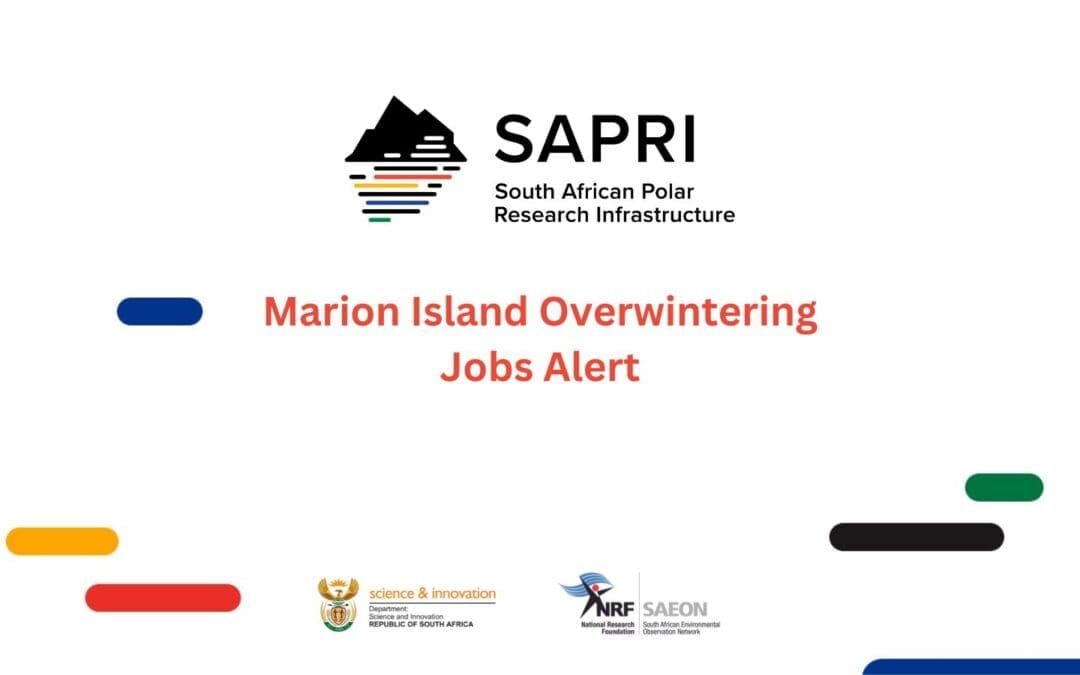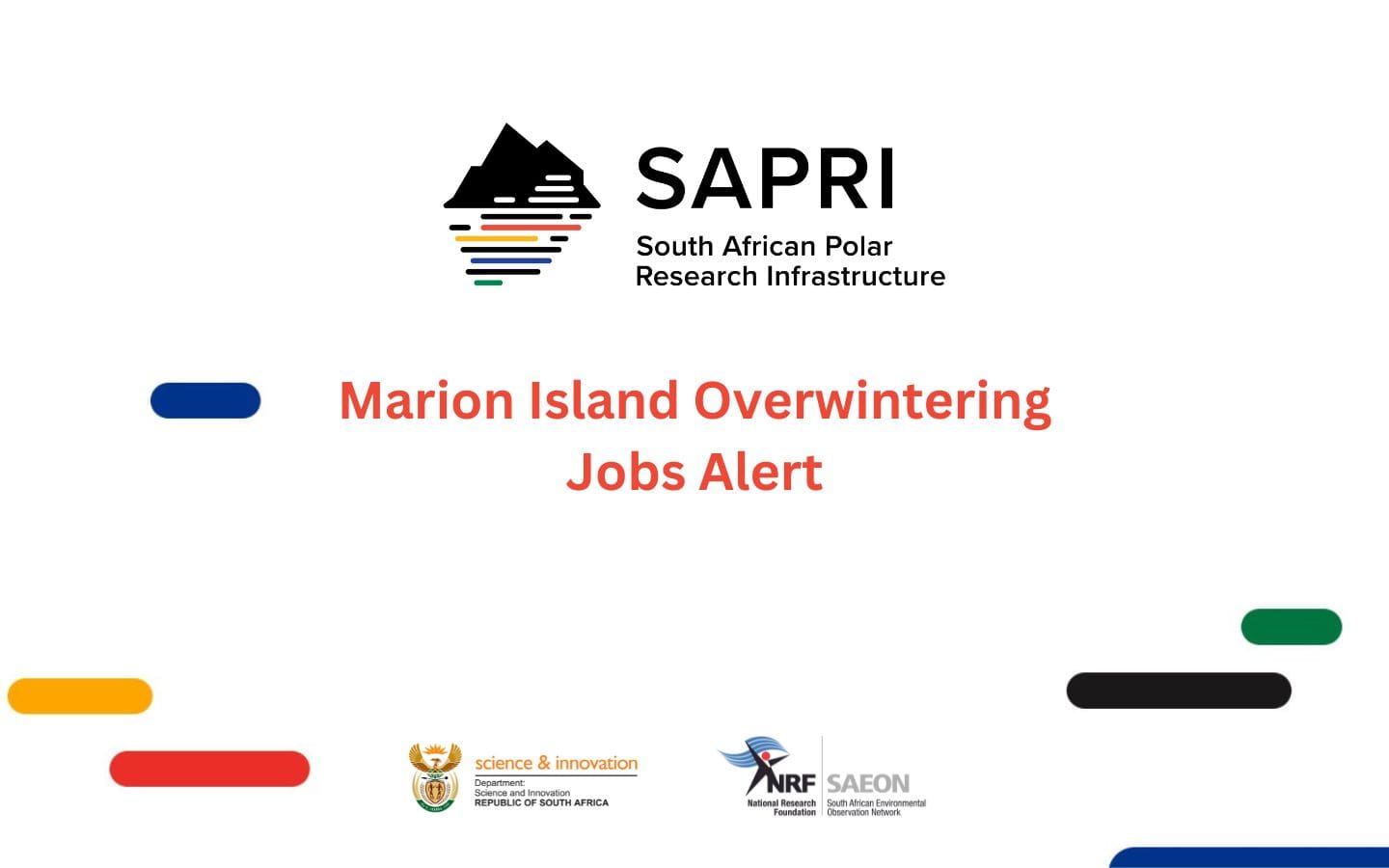
by Ria Olivier | Jan 29, 2024 | Ecology, Invasion Biology, Jobs, Marion Island, Mice Eradication, Overwintering Team, SANAP, sub-Antarctic, Team member
Vacancy for Mouse-Free Marion (MFM) Project Research Assistant on Marion Island (March 2024 – May 2025)
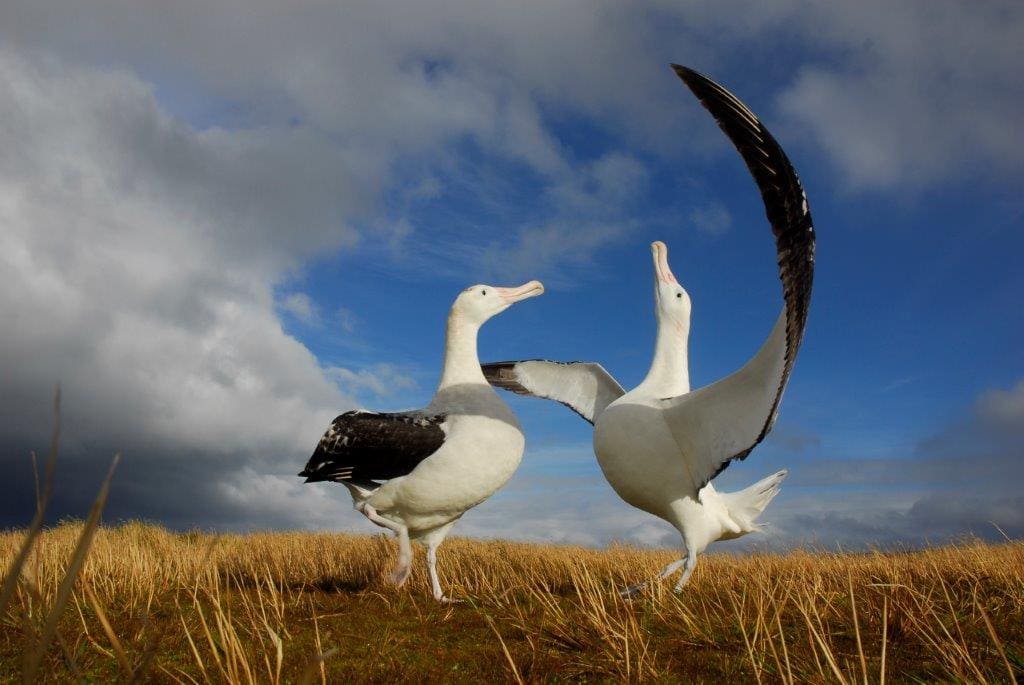
BirdLife South Africa, via the Mouse-Free Marion (MFM) Non-Profit Company (NPC), is offering an opportunity to a suitably qualified candidate to spend a year on Marion Island to continue monitoring studies designed to support the ongoing planning for the mouse-eradication operation. The position will include collecting field data on mice, continuing the monitoring of weather parameters, undertaking further field trials relating to the bait and, in collaboration with the University of Pretoria, contributing to the collection of baseline data on invertebrates and plants.
To read more about the Mouse Free Marion project – Click here
CLOSING DATE 12 FEBRUARY 2024
Read more about Marion Island and Overwintering Teams on the SANAP website
Key Responsibilities on Marion Island and Basic Academic Requirements, Experience, and Skills are is listed in the advertisement.
At least a B.Sc. (Hons) degree in conservation biology, ecology, or a related field.
Experience of field work in rugged terrain is required.
Please e-mail your application to Dr Isabel Human, at isabel.human@birdlife.org.za see relevant documents to be included in advertisement
South African applicants will receive priority. Please note that appointments will be contingent on availability of ship berths and funding.
For queries contact Dr. Sue Tonin, the Mouse-Free Marion Assistant Project Manager, at sue.tonin@birdlife.org.za

by Ria Olivier | Jan 25, 2024 | Ecology, Invasion Biology, Jobs, Marion Island, Mice Eradication, Overwintering Team, SANAP, sub-Antarctic, Team member
 Vacancy for field researcher on Marion Island (March 2024 – May 2025) –
Vacancy for field researcher on Marion Island (March 2024 – May 2025) –
Mouse impacts on invertebrates and plants
 The Department of Plant and Soil Sciences at the University of Pretoria is offering one suitably qualified candidate an opportunity to spend a year on Marion Island to measure various aspects of the impact of the house mouse on the diversity and function of the terrestrial ecosystems of Marion Island. This work will entail collecting baseline data, mostly on invertebrates and plants.
The Department of Plant and Soil Sciences at the University of Pretoria is offering one suitably qualified candidate an opportunity to spend a year on Marion Island to measure various aspects of the impact of the house mouse on the diversity and function of the terrestrial ecosystems of Marion Island. This work will entail collecting baseline data, mostly on invertebrates and plants.
CLOSING DATE 4 FEBRUARY 2024
Read more about Marion Island and Overwintering Teams on the SANAP website
REQUIREMENTS (full list available in advertisement
Minimum BSc (Hons) degree in an ecological field.
Experience of field work in rugged terrain is required.
Excellent organisational skills, attention to detail, meticulous observation, note-taking
and record-keeping abilities.
Experience of invertebrate and/or plant surveys.
Computer literacy with experience in data management, statistical analysis (at least
one undergraduate statistics course) and report writing are required.
Applicants should submit their applications here.
South African applicants will receive priority. Please note that appointments will be contingent on availability of ship berths and funding.
For queries contact Prof Greve (michelle.greve@up.ac.za) via email.

by Ria Olivier | Jan 23, 2024 | Announcement, Jobs, Marion Island, Overwintering Team, SANAP
 Join the 81 Marion Island Overwintering Team!
Join the 81 Marion Island Overwintering Team!
The Department of Forestry, Fisheries and the Environment (DFFE) is looking for a suitable candidate as communications engineer to join the 2024/2025 Marion Island team.
The team will depart (on the research and supply vessel, S.A. Agulhas II) to the sub-Antarctic Marion Island in April 2024 and return in May 2025. Click Here for the Marion Newsletter “The Wanderer” to read more about the overwintering team members experiences and activities. (Latest newsletter) More information available on SANAP website.
Position to be filled: Communications Engineer/Technician
APPLICATION DEADLINE: 5 February 2024
Click on the here to apply.

by Ria Olivier | Dec 24, 2023 | Gough Island, Important Dates, Marion Island, SANAE IV, SANAP

All team members at the stations at SANAE IV, Marion Island and Gough Island wish you all a happy festive season.
 SANAE IV – S62
SANAE IV – S62
 MARION 80
MARION 80
 GOUGH 69
GOUGH 69
The SANAP community We would also like to wish the SANAP overwintering teams a happy festive season!

by Ria Olivier | Dec 12, 2023 | International Days, Research, SA Polar Research Infrastructure, SANAP, SANAP Student, SAPRI, SCAR, Science, SEAmester
 Over a period of 5 days 172 people participate in the 6th SANAP symposium. A lot has happened in the past 4 years since the last symposium in Hermanus in 2018 and feedback on research and other activities within SANAP featured on the program. The symposium was hosted by Stellenbosch University at Houw Hoek Hotel in the Grabouw valley where the participants built on a SANAP Research community for the future.
Over a period of 5 days 172 people participate in the 6th SANAP symposium. A lot has happened in the past 4 years since the last symposium in Hermanus in 2018 and feedback on research and other activities within SANAP featured on the program. The symposium was hosted by Stellenbosch University at Houw Hoek Hotel in the Grabouw valley where the participants built on a SANAP Research community for the future.
The Symposium kicked off with a hybrid meeting of the South African national committee for SCAR and the first evening a keynote lecture was presented by Prof Jukka Tukhuri (Aalto University, Finland) on the discovery of Shackleton’s Endurance on a voyage of the SA Agulhas II. During the symposium keynote lectures and plenary talks were given by Dr Peter Convey of British Antarctic Survey, Dr Sue Tonin of Mouse Free Marion and Prof Marcello Vichi on the Polar Lab part of the South African Polar Research Infrastructure (SAPRI).
 The purpose of the symposium was to facilitate the free exchange of scientific information within SANAP research. In the Marine and Antarctic Research strategy it states that: “The need for coordinated, extensive and targeted research in the marine and oceanic domain has been underlined. Coordination has become important as there has been a shift in marine science from resources and process studies that could be carried out by small groups or individuals to very large-scale regional climate and ecosystem studies, where the success, nooses and benefits lie in the coordination.” One of the strategies outlined is: “creation of a society informed on the value of marine and Antarctic research initiatives.”
The purpose of the symposium was to facilitate the free exchange of scientific information within SANAP research. In the Marine and Antarctic Research strategy it states that: “The need for coordinated, extensive and targeted research in the marine and oceanic domain has been underlined. Coordination has become important as there has been a shift in marine science from resources and process studies that could be carried out by small groups or individuals to very large-scale regional climate and ecosystem studies, where the success, nooses and benefits lie in the coordination.” One of the strategies outlined is: “creation of a society informed on the value of marine and Antarctic research initiatives.”
The following five thematic (vertical) areas were prioritised for research sessions and various principal investigators and researchers within SANAP chaired the sessions:
- Oceans and marine ecosystems under global change – Dr Rampai, Dr Fietz, Dr Thomalla, Dr Nicholson and Dr Lamont
- Earth systems observations – Prof Nel, Dr Lotz
- Ecosystems, biodiversity and biodiscovery – Prof Van Vuuren, Prof Cowan, Dr Greve, Prof Pistorius, Dr Wege,
- Innovation and development – Prof A Bekker
- Human Enterprise – Dr Lavery
Cross-cutting support interventions were discussed such as:
- Coordination and governance by Dr Gilbert Siko and Tracy Klarenbeek
- Human capital development and transformation chaired by Prof Ansorge
- Public awareness and engagement chaired by A Louw
- Research Infrastructure and platforms chaired by Dr T Morris
- Data management chaired by Dr Treasure
Feedback from SA National Committee for SCAR, APECSSA, SCALE expeditions and SEAmester were given and an evening session was held by the APECSSA committee where all the early career researchers that attended the symposium had great discussions. The newly established SAPRI was showcased to the SANAP community in cross discipline sessions on research infrastructure and platforms, data management and engagement, and a keynote lecture on the SAPRI Polar Lab that concluded all the research presentations

 It was the first time that so many South African polar researchers were together on the 1st December on International Antarctic Day and a special Antarctic Breakfast took place to commemorate this International Day. A map of Antarctica, was signed and a cake was provided to celebrate the occasion.
It was the first time that so many South African polar researchers were together on the 1st December on International Antarctic Day and a special Antarctic Breakfast took place to commemorate this International Day. A map of Antarctica, was signed and a cake was provided to celebrate the occasion.
 The organising committee would like to thank all participants and attendees for making the 6th SANAP symposium a success and achieving its aim in building a SANAP research Community for the future. We are looking forward to the next Symposium in Kruger National Park in 2025 that will be hosted by a consortium of University of Johannesburg, Fort Hare University and the University of the Free State.
The organising committee would like to thank all participants and attendees for making the 6th SANAP symposium a success and achieving its aim in building a SANAP research Community for the future. We are looking forward to the next Symposium in Kruger National Park in 2025 that will be hosted by a consortium of University of Johannesburg, Fort Hare University and the University of the Free State.
Comment by an ECR: “This was my very first SANAP symposium and it was absolutely incredible! Job well done to all those who assisted in organizing the event. Although it was a jam-packed week, the sessions were extremely interesting and well organized. The location was a perfect venue choice for this kind of event – especially for people to mingle, engage with one another and building strong relationships as well as for making connections for potential research collaborations. I am really impressed with the big focus that this symposium had on Early Career Researchers – I think it is a great way of getting the younger professionals more involved and to network! Congrats on pulling off a very successful SANAP Symposium!”
More will follow of the symposium and sessions that took place with a photos.
A huge thank you to the NRF for making the symposium possible and to all our suppliers and sponsors; Houw Hoek Hotel, Neelsie Travel Bureau, Adjuvo enterprises, Trilogy Audio Services, Crazylicous Cookies.
Featured Image: David Hedding
Image of signatures on Antarctica map : Anche Louw

by Ria Olivier | Nov 27, 2023 | Announcement, Jobs, Marion Island, News, Overwintering Team, Prince Edward Islands, Research, SA Polar Research Infrastructure, SANAP, SAPolarRI, SAPRI, Science, Southern Ocean, Stations, sub-Antarctic
 Applications open for:
Applications open for:
- Overwintering Birder
- Overwintering Killer Whaler
- Overwintering Sealer (2x positions)
The National Research Foundation (NRF) supports and promotes research and human capital development through funding, the provision of National Research Facilities and science outreach platforms and programmes to the broader community in all fields of science and technology, including natural sciences, engineering, social sciences and humanities.
The South African Environmental Observation Network (SAEON) is a research platform funded by the Department of Science and Innovation (DSI) and managed by the National Research Foundation (NRF) since 2002. SAEON is mandated to observe and research ecosystems on land, in coastal regions and the oceans to understand how those systems function and might change over time and space when influenced by socio-economic driving forces including climate change. We deliver our data online and offer tools, services and advice for informed environmental policy-making.
SAEON Egagasini Node, based in Cape Town, Western Cape, requires the services of suitably qualified individuals to be responsible for collecting field data on birds and mammals, to be used for conservation and academic purposes as part of the South African Polar Research Infrastructure (SAPRI). The birder will be contributing to the project ‘On-island impacts of climate change on the Southern Ocean’s iconic seabirds’ run by the FitzPatrick Institute (University of Cape Town).
The Marion Island research station is managed and administered by the Department of Forestry, Fisheries and the Environment (DFFE).
Apply before: 07 December 2023
Click here!
Anche Louw, South African Polar Research Infrastructure, 27 November 2023
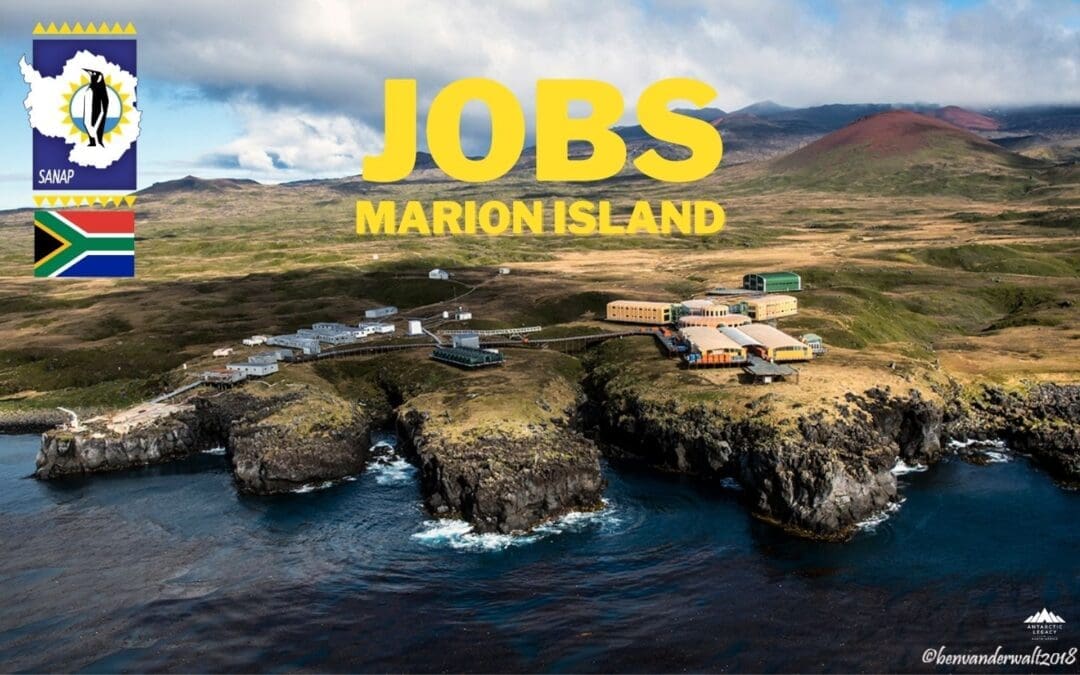


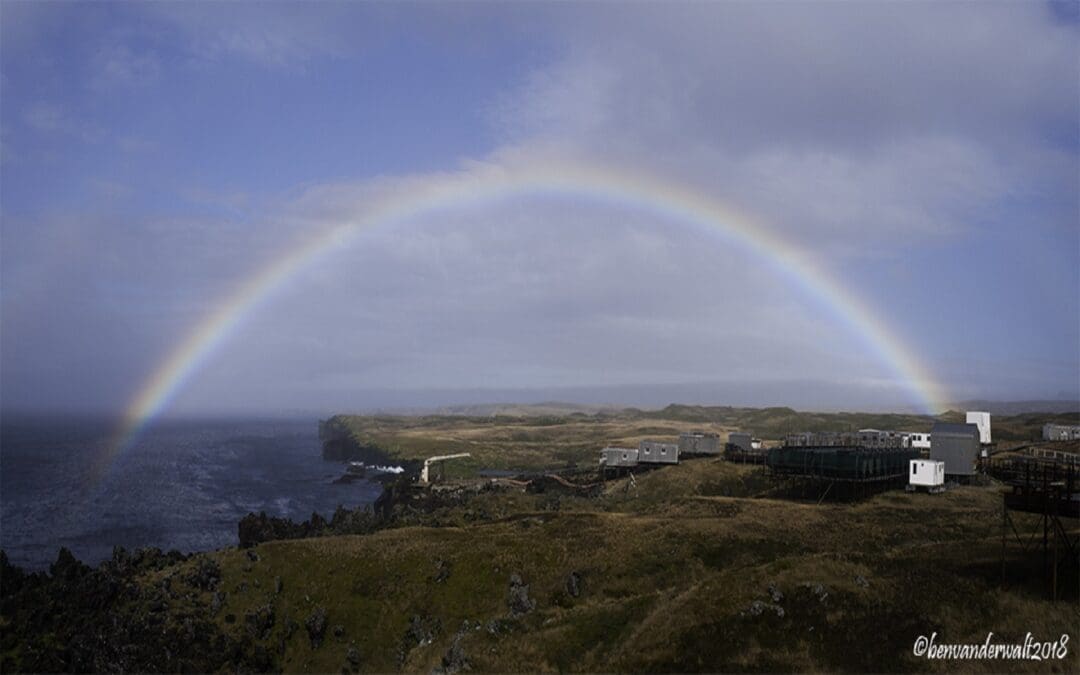
 Vacancy for field researcher on Marion Island (March 2024 – May 2025) –
Vacancy for field researcher on Marion Island (March 2024 – May 2025) –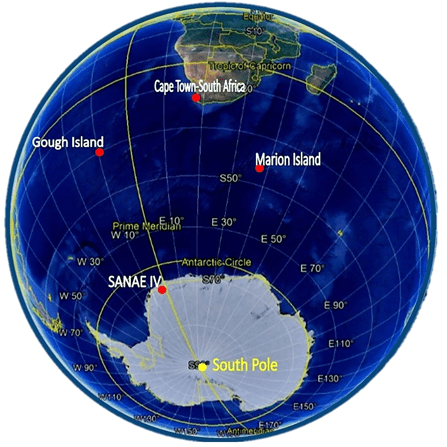 The Department of Plant and Soil Sciences at the University of Pretoria is offering one suitably qualified candidate an opportunity to spend a year on Marion Island to measure various aspects of the impact of the house mouse on the diversity and function of the terrestrial ecosystems of Marion Island. This work will entail collecting baseline data, mostly on invertebrates and plants.
The Department of Plant and Soil Sciences at the University of Pretoria is offering one suitably qualified candidate an opportunity to spend a year on Marion Island to measure various aspects of the impact of the house mouse on the diversity and function of the terrestrial ecosystems of Marion Island. This work will entail collecting baseline data, mostly on invertebrates and plants.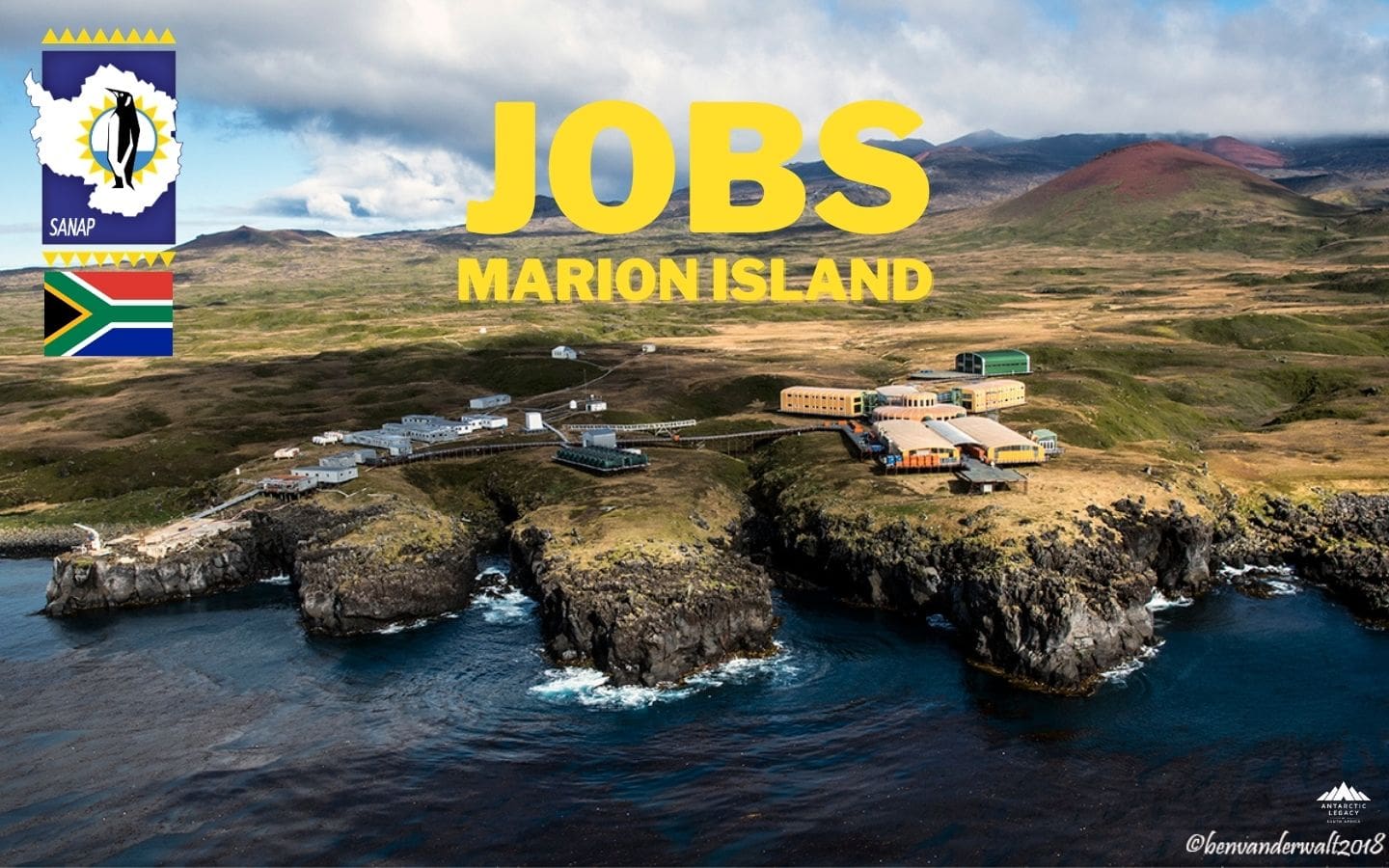 Join the 81 Marion Island Overwintering Team!
Join the 81 Marion Island Overwintering Team!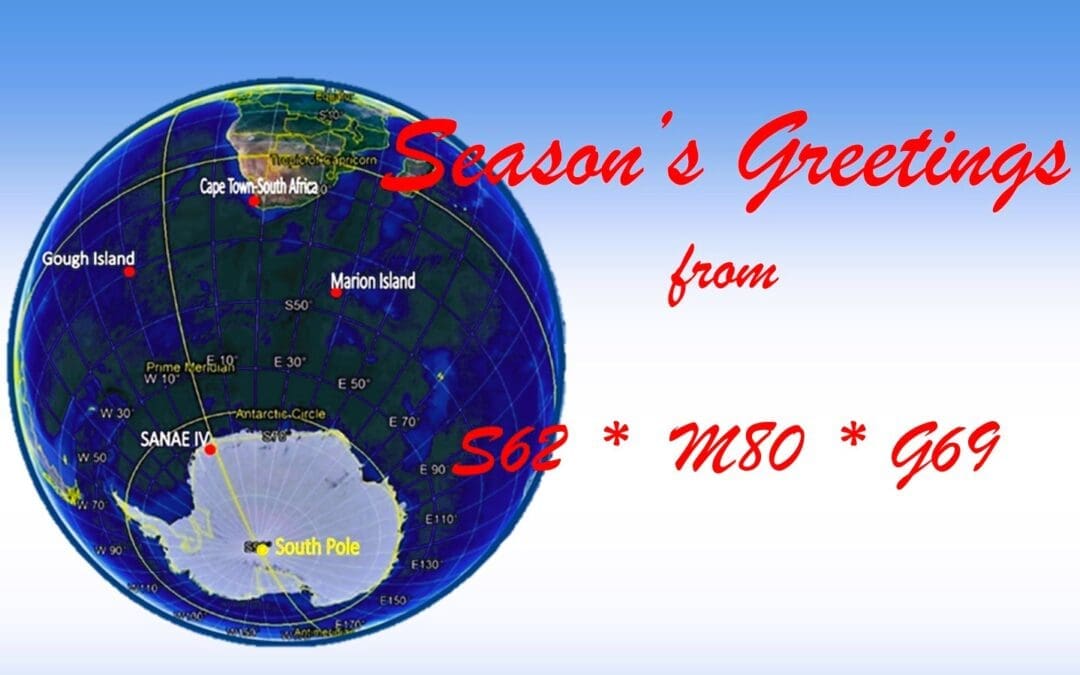

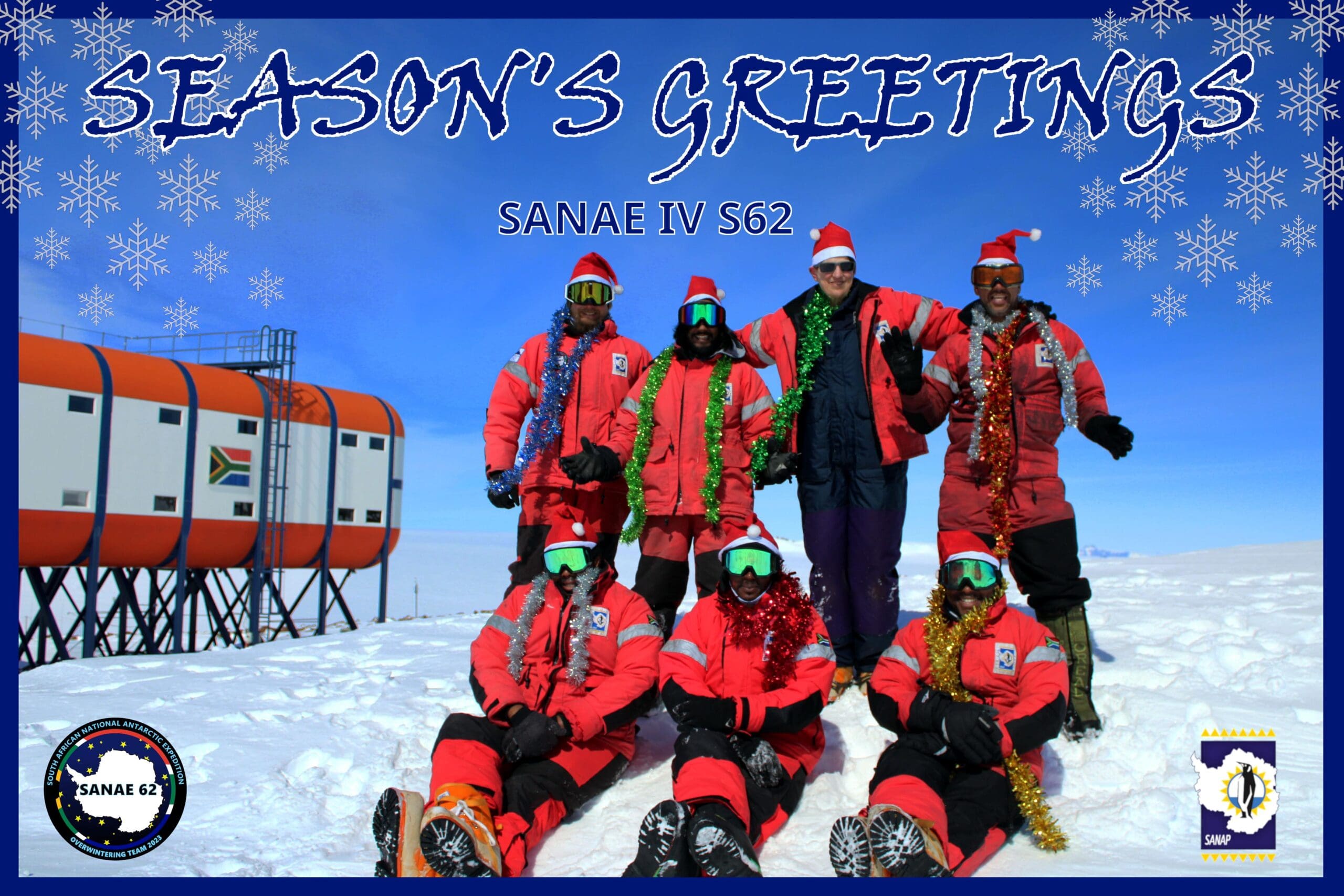 SANAE IV – S62
SANAE IV – S62 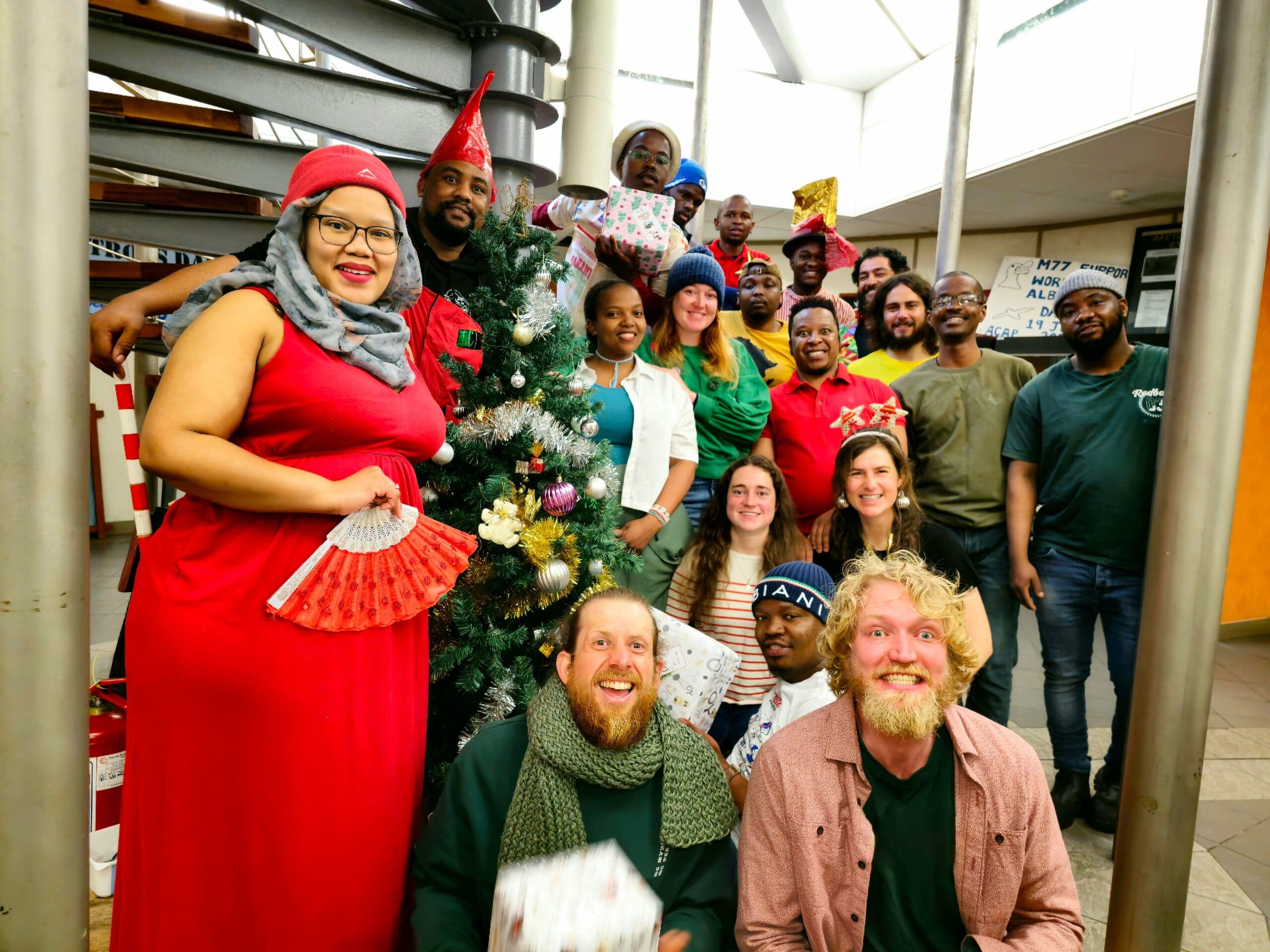 MARION 80
MARION 80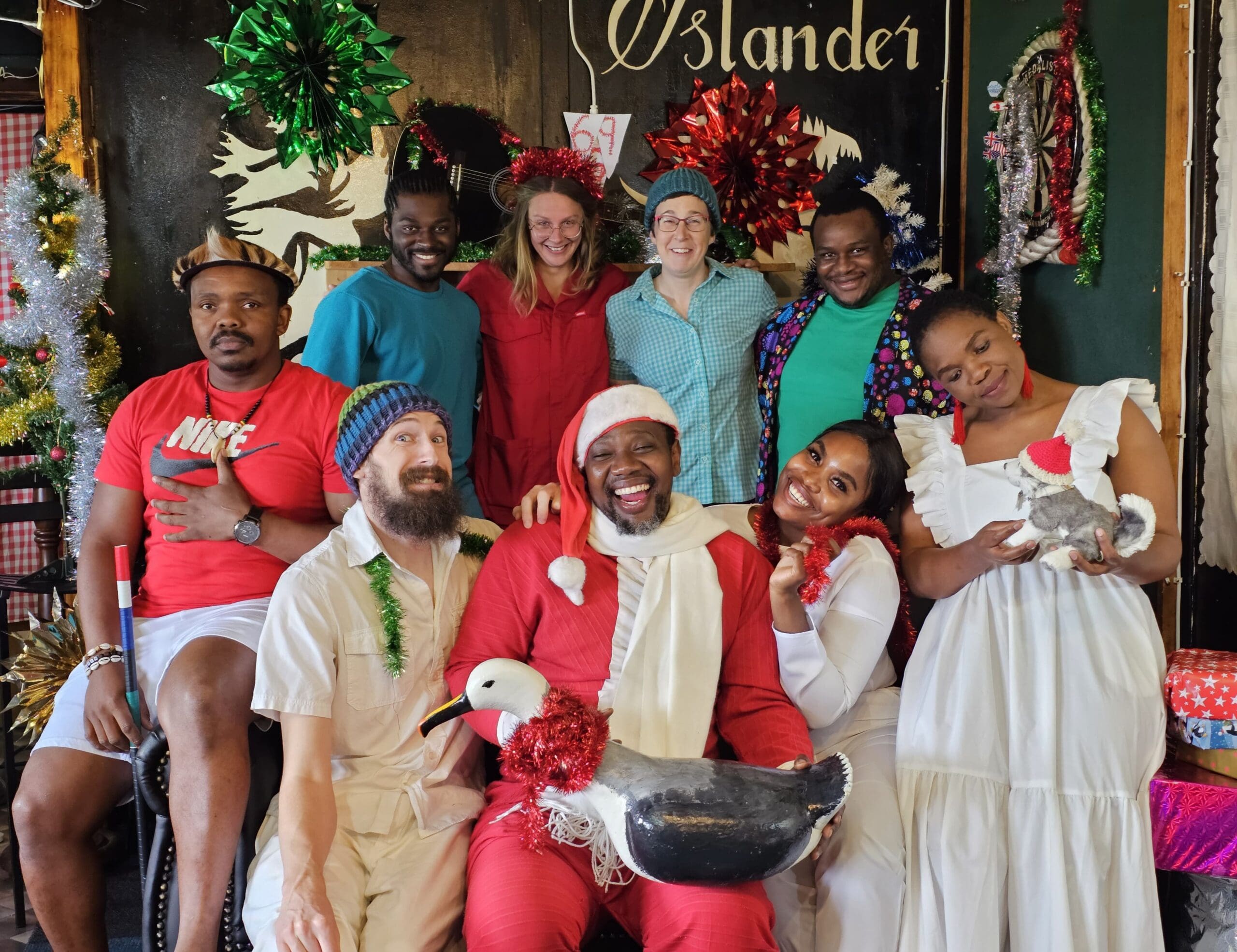 GOUGH 69
GOUGH 69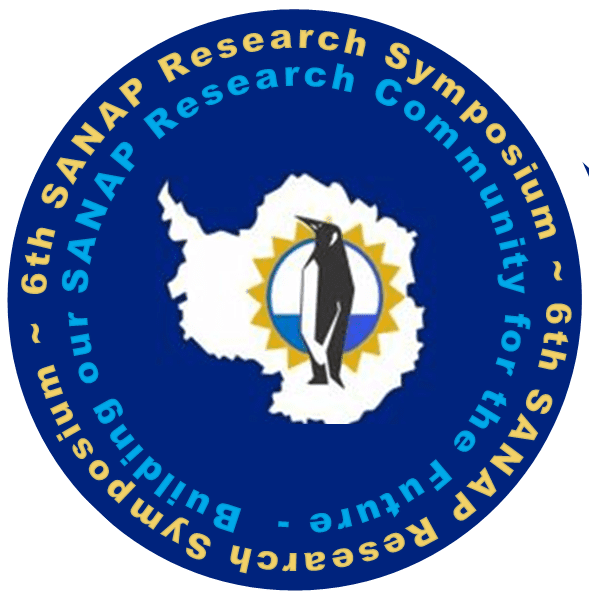
 Over a period of 5 days 172 people participate in the
Over a period of 5 days 172 people participate in the 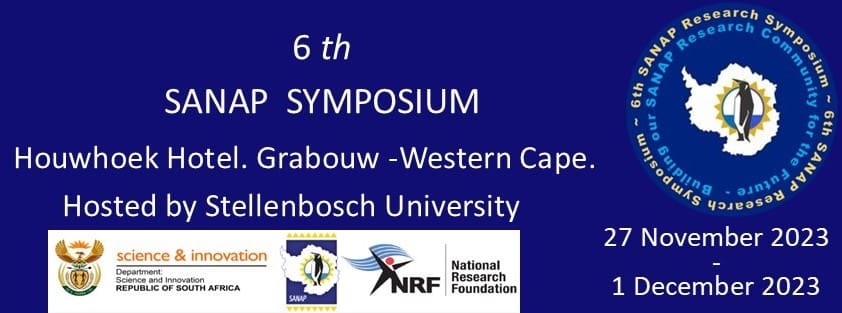 The purpose of the symposium was to facilitate the free exchange of scientific information within SANAP research. In the
The purpose of the symposium was to facilitate the free exchange of scientific information within SANAP research. In the 
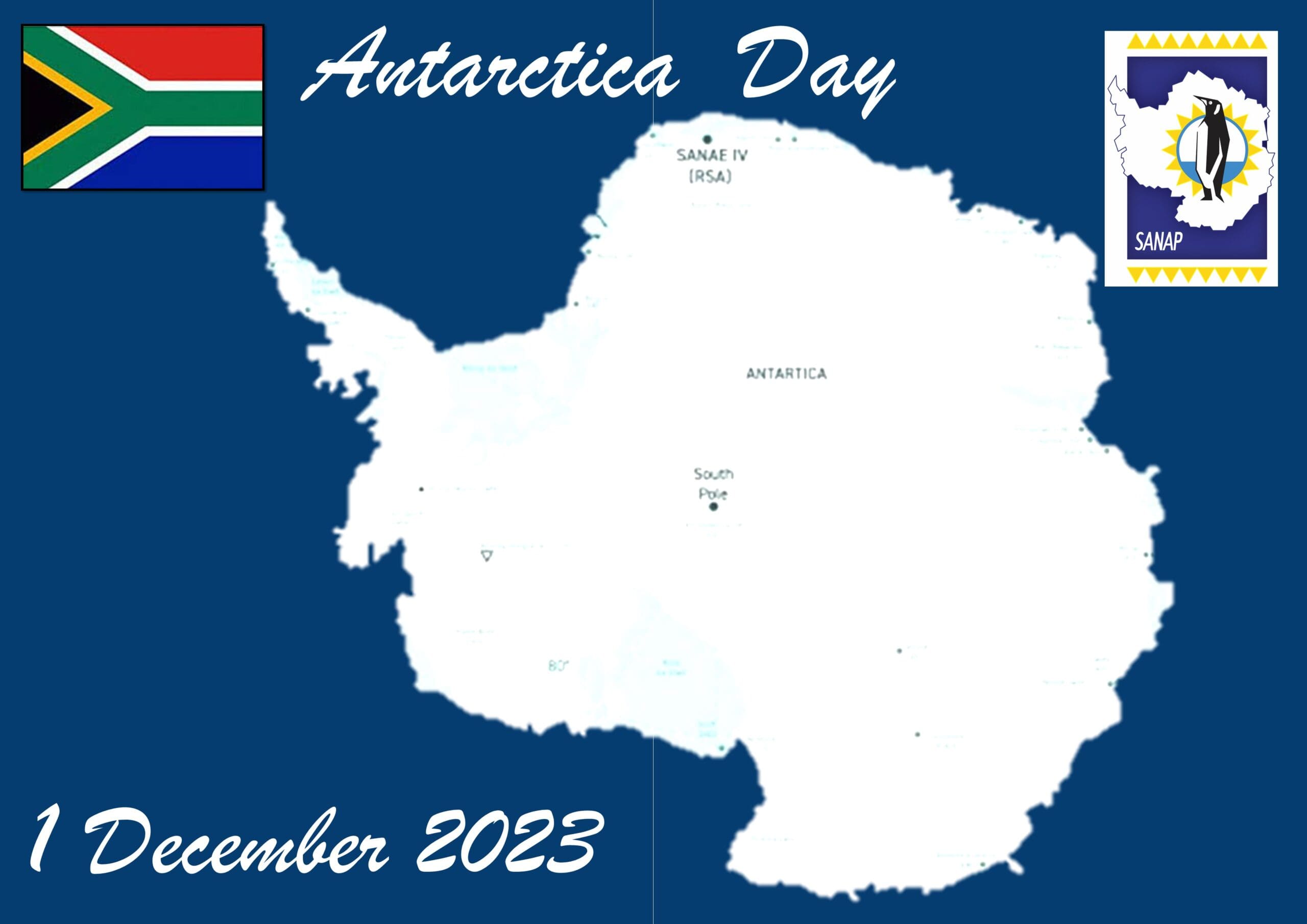 It was the first time that so many South African polar researchers were together on the 1st December on International Antarctic Day and a special Antarctic Breakfast took place to commemorate this International Day. A map of Antarctica, was signed and a cake was provided to celebrate the occasion.
It was the first time that so many South African polar researchers were together on the 1st December on International Antarctic Day and a special Antarctic Breakfast took place to commemorate this International Day. A map of Antarctica, was signed and a cake was provided to celebrate the occasion.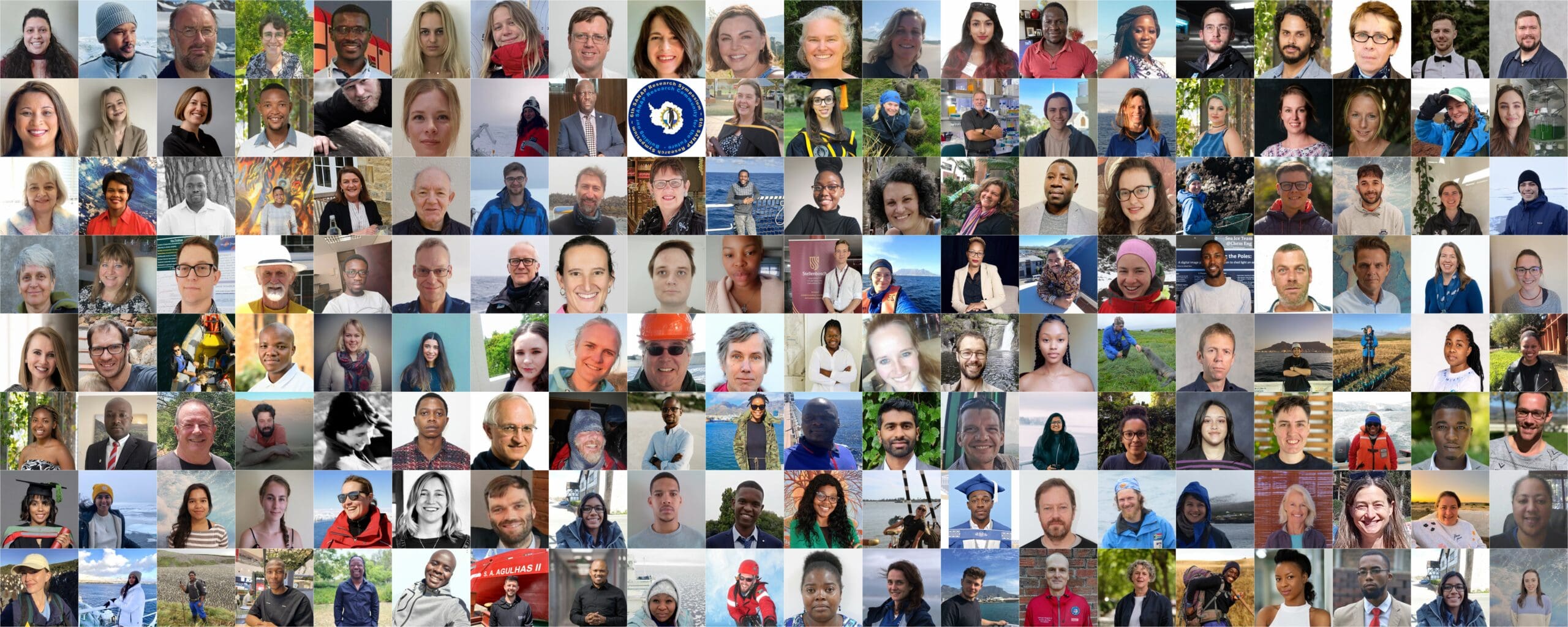 The organising committee would like to thank all participants and attendees for making the 6th SANAP symposium a success and achieving its aim in building a SANAP research Community for the future. We are looking forward to the next Symposium in Kruger National Park in 2025 that will be hosted by a consortium of University of Johannesburg, Fort Hare University and the University of the Free State.
The organising committee would like to thank all participants and attendees for making the 6th SANAP symposium a success and achieving its aim in building a SANAP research Community for the future. We are looking forward to the next Symposium in Kruger National Park in 2025 that will be hosted by a consortium of University of Johannesburg, Fort Hare University and the University of the Free State.